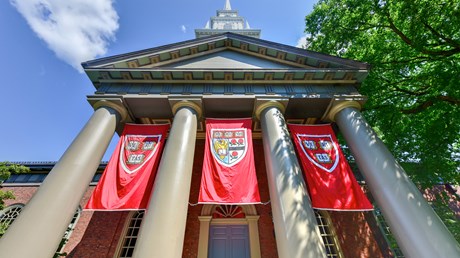Participating in interfaith work at this Ivy League university is a help not a hindrance to the exclusivist claims of Christian faith.

Last week, The New York Times ran a provocative piece stating that the new president of the Harvard Chaplains is an atheist. Greg Epstein was elected unanimously last spring by his fellow Harvard chaplains. I am one of the people who voted for him.
For seven years, I have worked at Harvard as an evangelical campus minister employed by InterVarsity Christian Fellowship (IVCF). I believe the Bible is authoritative and entirely trustworthy as God’s Word. I believe that Jesus alone is the way of salvation, and that no one comes to the Father except through him. So why would I vote for an atheist to lead the Harvard Chaplains?
The answer lies in the unique, decentralized approach of the Harvard Chaplains and how that group of leaders from many faiths (or no faith) has opened doors for gospel-centered ministry on the campus of a prestigious Ivy League school. The real Harvard Chaplains group—not the one poorly represented in the media—tells a different and very significant story of how evangelicals can flourish in interfaith spaces without compromising faith, truth, or mission.
In response to The New York Times profile, many Christian and conservative media outlets were quick to fuel the sense of aggrievement felt by religious people who are understandably trying to protect themselves against the rising tide of secularism. In so many words, they’re concerned that “even faith spaces will be ruled by secularists, should Harvard have its way.”
Had I not been in the room where it happened, I might have had a similar reaction to the news.
That room was of course a Zoom call. It took place in the spring. As a group of about 30, we voted on a slate of chaplains for next year’s executive board. I was ...
from Christianity Today Magazine
via

.gif)

.gif)

.gif)
.gif)
